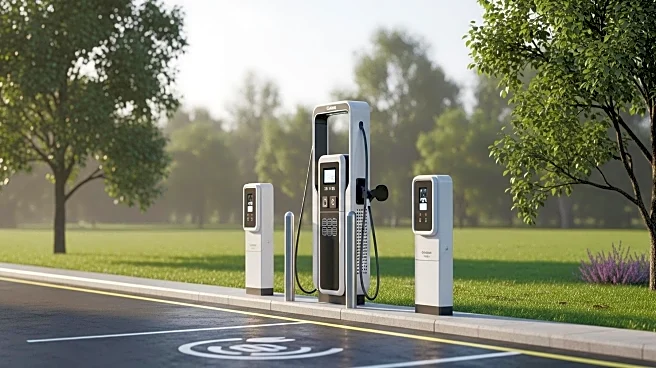What's Happening?
Electric car owners in Delaware are facing new fees that are impacting their cost savings. Many drivers opt for electric vehicles to reduce expenses associated with gasoline. However, the introduction of these fees is diminishing the financial benefits that come with owning an electric car. The fees are part of a broader initiative to address infrastructure funding, as electric vehicles contribute less to traditional gas tax revenues, which are typically used for road maintenance and improvements.
Why It's Important?
The imposition of additional fees on electric car owners in Delaware highlights a growing challenge in balancing environmental goals with infrastructure funding needs. As more consumers shift towards electric vehicles, states are grappling with reduced gas tax revenues, which traditionally fund road and transportation projects. This development could influence public policy and consumer behavior, potentially discouraging the adoption of electric vehicles due to increased ownership costs. It also raises questions about how states can equitably fund infrastructure while promoting sustainable transportation.
What's Next?
The introduction of fees for electric car owners may prompt discussions among policymakers and stakeholders about alternative funding mechanisms for infrastructure. Potential solutions could include revising tax structures or implementing mileage-based fees. Electric vehicle manufacturers and environmental advocates might engage in lobbying efforts to mitigate the impact of these fees and promote sustainable transportation options. Additionally, other states may observe Delaware's approach and consider similar measures, potentially leading to a broader national conversation on infrastructure funding in the era of electric vehicles.
Beyond the Headlines
The fees imposed on electric car owners in Delaware could have long-term implications for the state's environmental policies and goals. Balancing infrastructure funding with the promotion of clean energy vehicles is a complex issue that may require innovative solutions. This situation underscores the need for comprehensive strategies that support both economic and environmental objectives, potentially influencing future legislative actions and public sentiment towards electric vehicle adoption.









